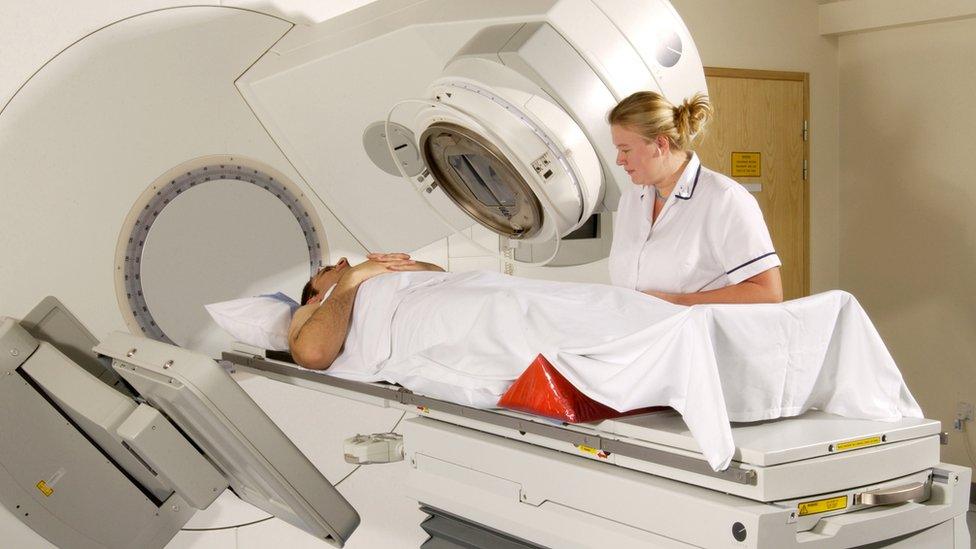Latest cancer treatment waiting times are 'worst ever'
- Published
- comments
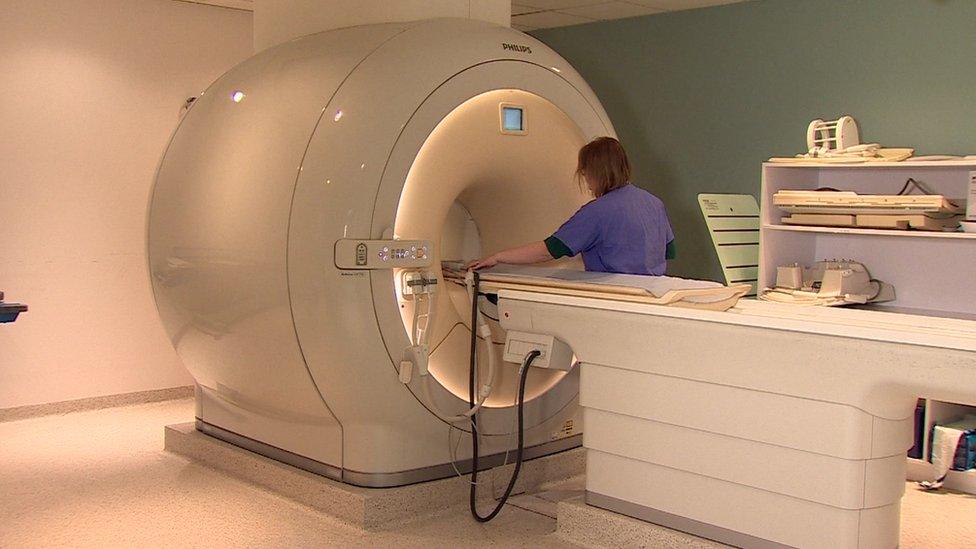
A state-of-the-art MRI scan could reduce a man's prostate cancer diagnosis by weeks
Scotland's cancer treatment waiting times are at their worst level in six years.
Only four of the country's 14 health boards met the target of 62 days between referral for a suspected cancer case until the first treatment.
Results for the first quarter of 2018 show 85% of patients started treatment within the 62 day standard.
The Scottish government admitted the performance was "simply not good enough".
The figures suggest a steady decline from 87.1% in the previous quarter and 88.1% for the same quarter in 2017.
The 62-day standard was met by NHS Borders, NHS Lanarkshire, NHS Shetland and NHS Dumfries & Galloway.
Health Secretary Shona Robison said: "Once a decision to treat has been reached, patients in Scotland wait on average six days for treatment.
"However, the statistics show that some patients continue to wait too long from referral to treatment. Boards have given me reassurance that cancer patients continue to be prioritised, however, performance is simply not good enough in an area of high clinical priority.
"Our new endoscopy action plan, backed by £14m, will help ensure all patients receive one of the four key endoscopy tests within six weeks and reduce the number of people waiting for endoscopies by 5,000 this year alone."
"We have also announced funding to reduce long waits for treatment, including £25m to target a number of specialities, including neurology, orthopaedics and diagnostics. A further £25m will be made available later in the year."
'Plan and invest'
Gregor McNie, head of external affairs at Cancer Research UK, said: "Cancer waiting times are really important for patients to know they are being seen as a priority.
"But they are also a barometer to how the service is coping more broadly. If waiting time targets are challenged then the service is most certainly more challenged widely.
"We need investment in diagnostic staff particularly and upscaling in other areas to support diagnostic services.
"The government needs to really plan and invest to make that happen."
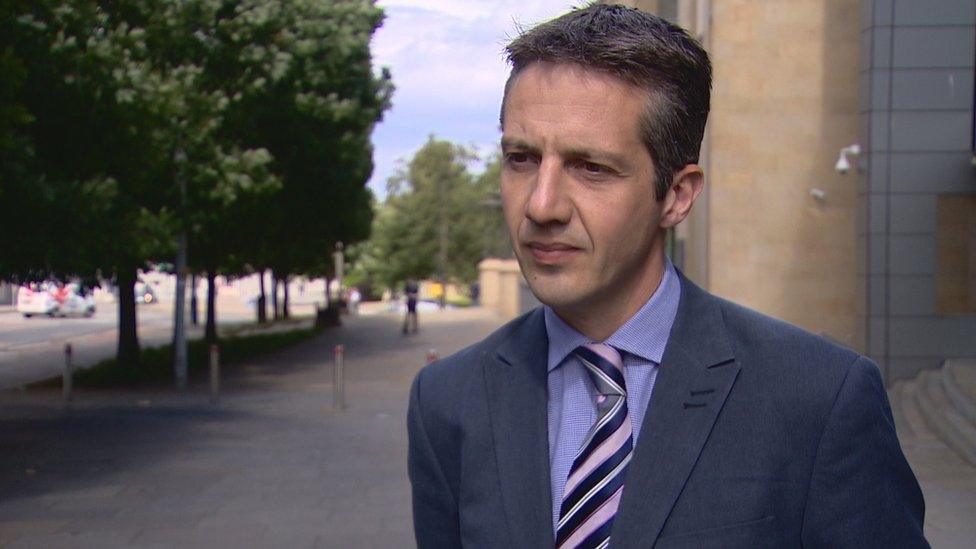
Gregor McNie from Cancer Research UK is calling for more investment
Gordon McLean from Macmillan Cancer Support said: "We are disappointed to see one of the worst cancer waiting times since records began with both the 62 day and 31 day standard slipping even more.
"We know the NHS is under considerable pressure, however every week that passes without this waiting times crisis being resolved is another week people face anguished waits to find out if they have cancer or to start treatment."

'My cancer spread while I waited 90 days for treatment'
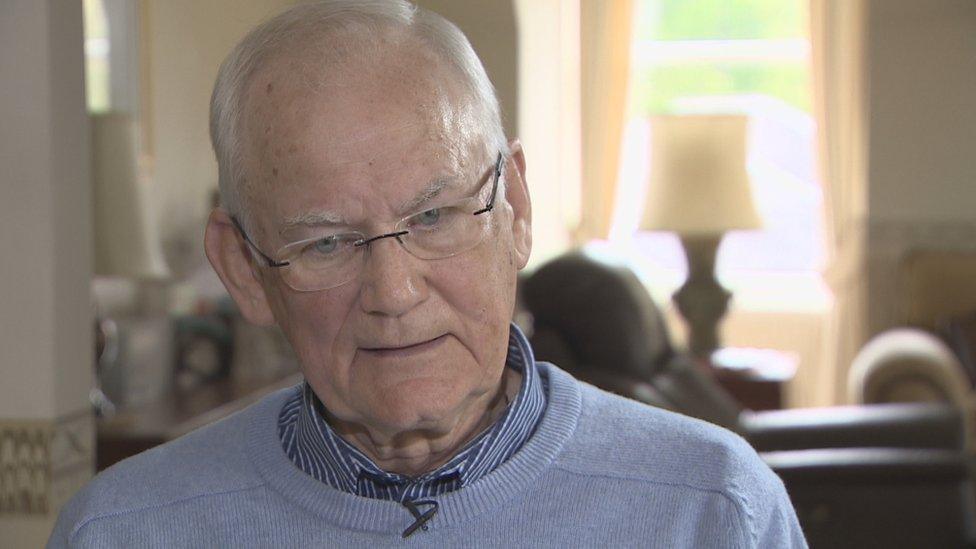
Tom Martin would like to see waiting times improved
Retired engineer Tom Martin, 80, is living with prostate cancer.
After the first visit to his GP, it took 90 days before he started treatment, and 120 days before he actually met an oncologist.
"The waiting times are far too long and the longest wait was between seeing my GP and seeing the urologist. That took 37 days before I saw the urologist which is more than half the 62 day waiting time.
"It was an emotional time for my wife Margaret and I. My concern was the cancer progressing while I waited.
"I was really upset when I discovered it had spread beyond the prostate because that limited the options for my treatment.
"In the back of my mind I think if I had been diagnosed earlier and started treatment earlier then it may not have spread beyond the prostate.
"But I can't be certain. All cancers grow at different rates."
As a former engineer, Tom found flaws in the process.
"I thought it have been be improved. It struck me that the step-by-step approach - which is the current protocol - could be improved to speed up the whole process.
"I wrote to the health secretary and sent her my cancer journey and suggested she might find my case helpful.
"But we are still carrying on the same way. The waiting times are far too long."

The report, external, published by NHS Scotland's Information Services Division (ISD), reports on the two waiting times standards used to measure the time patients have waited for their first cancer treatment.
The 62-day standard states that 95% of patients urgently referred with a suspicion of cancer will wait a maximum of 62 days from referral to first cancer treatment
The 31-day standard states that 95% of all patients will wait no more than 31 days from decision to treat to first cancer treatment
93.5% of patients started treatment within the 31 day standard, which is a decrease from 94.6% in the previous quarter and from 94.9% for quarter ending March 2017.
The 31-day standard was met by 10 NHS Boards. It was not met by NHS Grampian, NHS Greater Glasgow and Clyde, NHS Highland, NHS Lothian and NHS Tayside.
'Insult to patients'
Scottish Labour health spokesman Anas Sarwar called the latest figures "a natonal scandal".
He said: "Cancer remains Scotland's biggest killer and swift treatment can have a dramatic effect on outcomes, but instead the SNP government is continually failing patients across Scotland.
"Having one person waiting too long for treatment for cancer is one too many - having thousands of people wait too long is a national scandal.
"The reality is the SNP has left our NHS doctors and nurses over-worked, under-staffed and under-resourced. Health Secretary Shona Robison's legacy at health is one of horrendous mismanagement and then total denial over performance."
Scottish Liberal Democrat health spokesperson Alex Cole-Hamilton MSP has said that current cancer waits were an insult to patients
He added: "When the SNP announced new funding for cancer screening this week, it was only because they knew terrible performance figures were set to be published 24 hours later. This hustling and scraping is totally the wrong approach to take to our health service and an insult to patients."
- Published28 March 2017
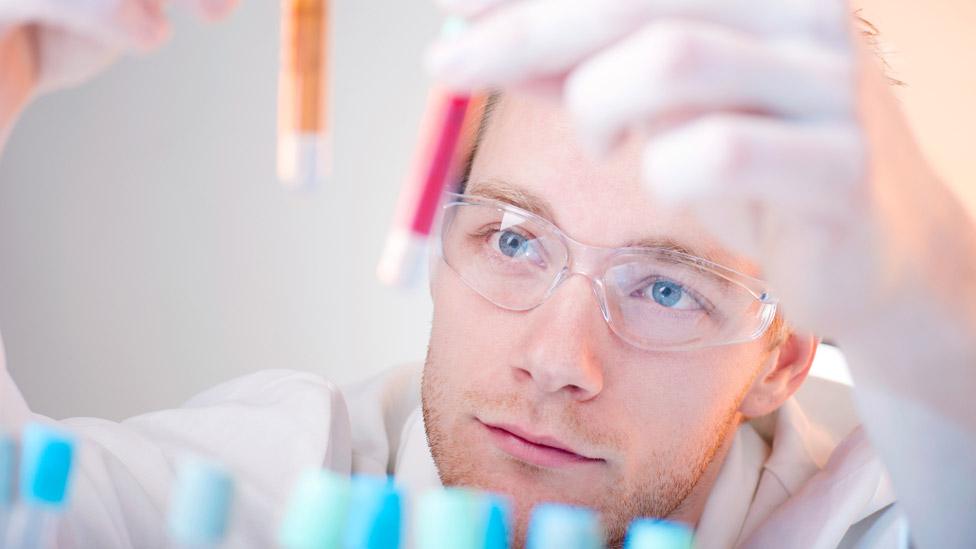
- Published26 September 2017
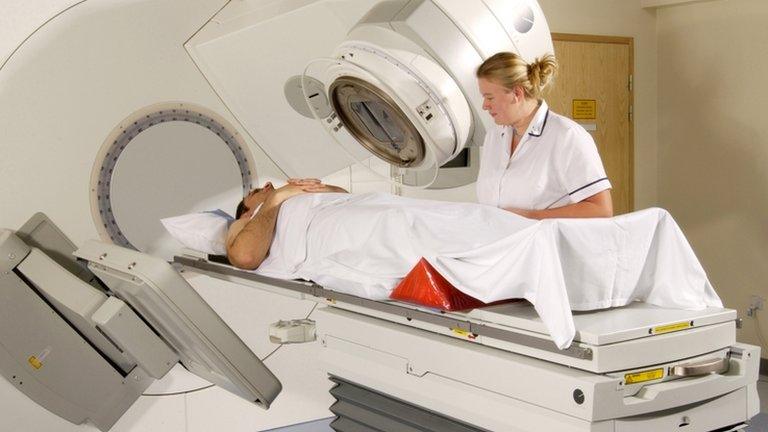
- Published28 June 2016
